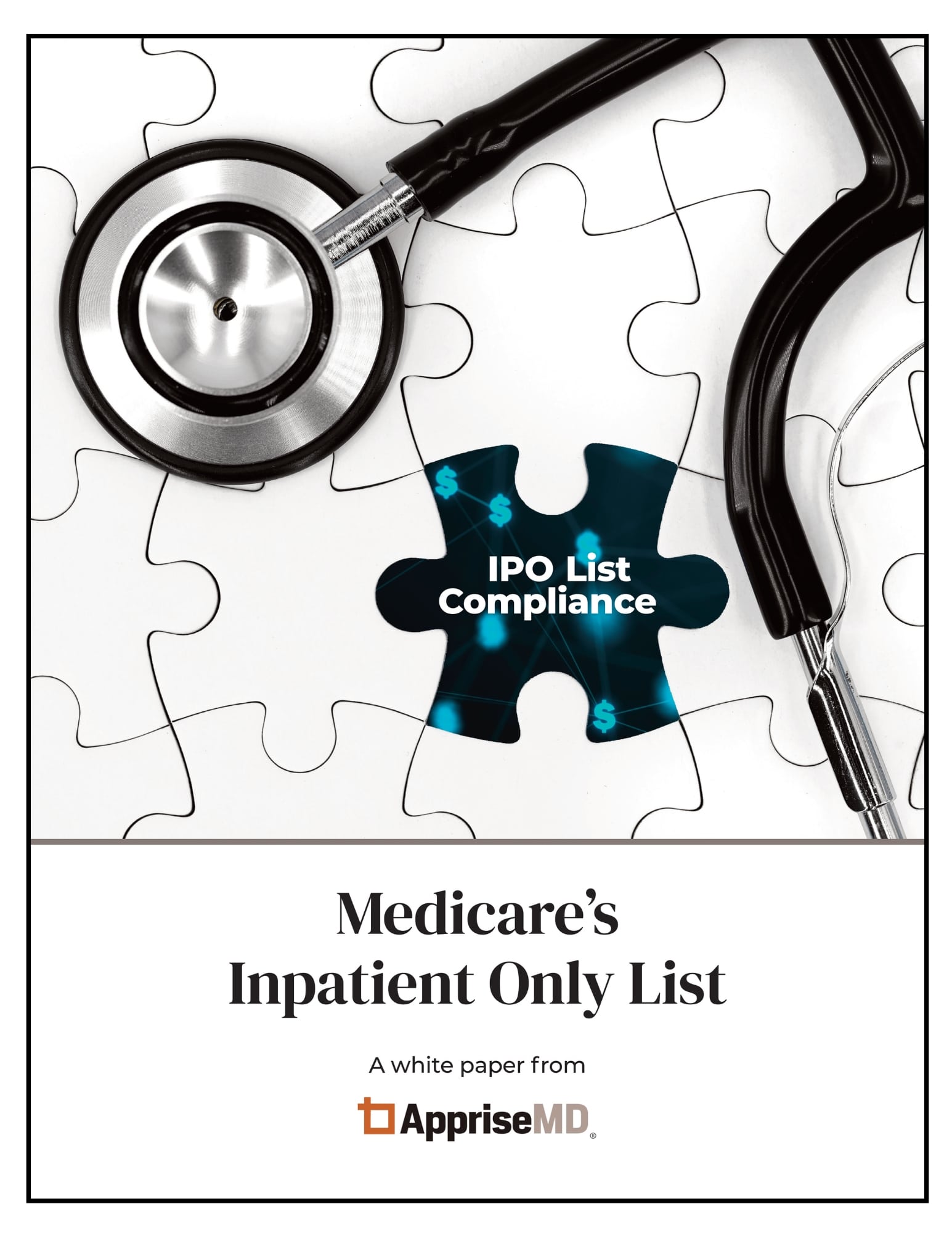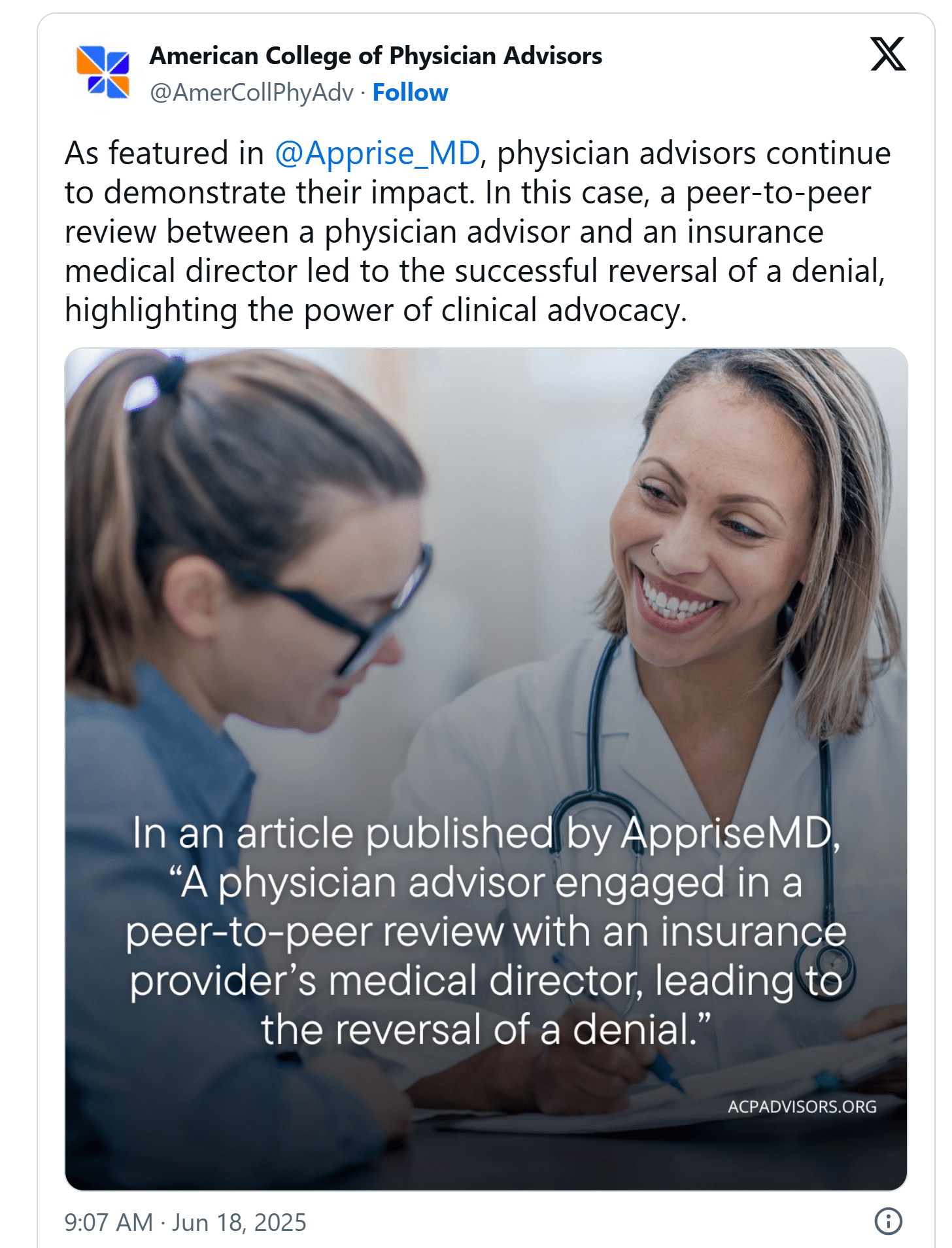AppriseMD Blog
CLINICAL SUMMARY: A newborn infant, just over one-month-old, arrived at the Emergency Department (ED) under the direction of a pediatrician, who was concerned about lack of weight gain since birth. The infant was born weighing 8 pounds, 5 ounces and weighed 8 pounds, 5.5 ounces one month and five days after birth. The patient’s weight […]
White Papers

The financial impact of the IPO list magnified with the rise of CMS-4201-F, giving rise to inpatient reimbursement for all MAO patients who require services designated on the IPO list. Hospitals need to ensure that the proper setting is scheduled when any Medicare or MA patient undergoes a procedure designated on the IPO list, and they should also follow any proposed additions and removals to the list closely to ensure appropriate treatment and reimbursement.
Case Studies
CLINICAL SUMMARY: A newborn infant, just over one-month-old, arrived at the Emergency Department (ED) under the direction of a pediatrician, who was concerned about lack of weight gain since birth. The infant was born weighing 8 pounds, 5 ounces and weighed 8 pounds, 5.5 ounces one month and five days after birth. The patient’s weight […]



